Phone: +39 015 0991868 | Email: info@palazzogromolosa.it | Corso del Piazzo 22/24, 13900 Biella (BI), Italia
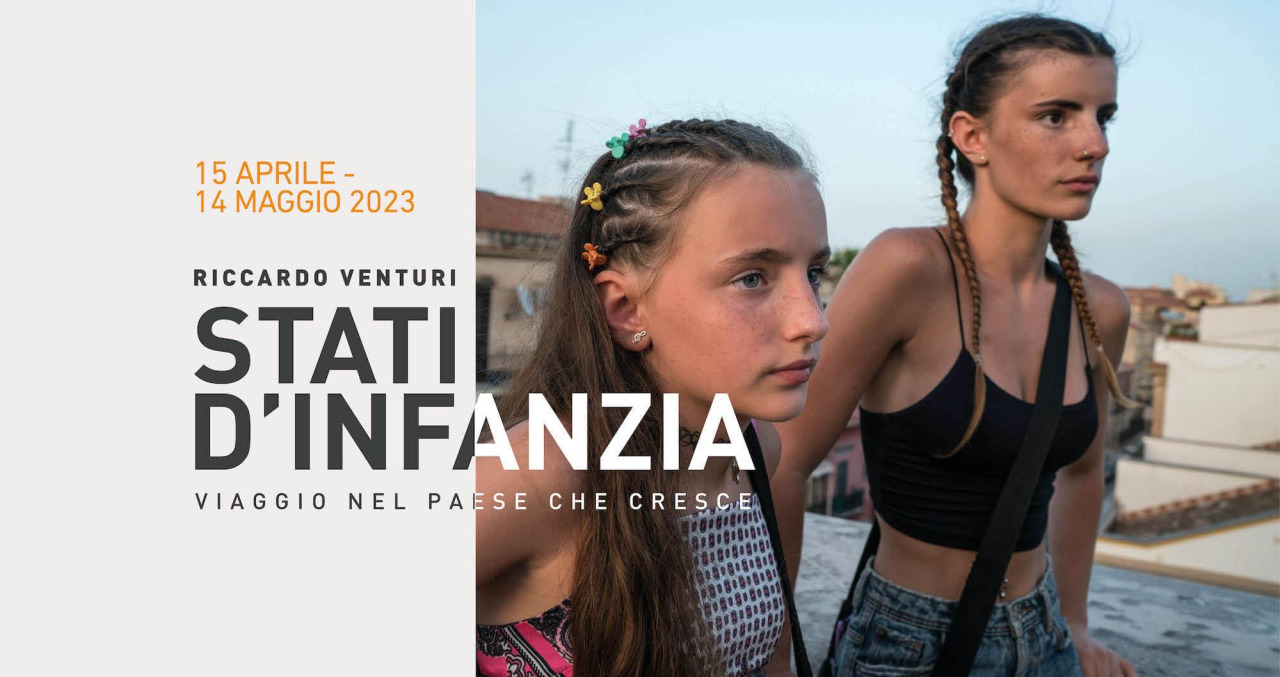
From April 15th to May 14th, on the occasion of the inauguration of Cascina Oremo, Palazzo Gromo Losa hosts the exhibition States of childhood - Journey to a growing country, an emotional journey that will lead visitors to reflect on the inequalities and marginalization experienced by minors in Italy and on projects to counter it.
Curated by the Akronos Association, the exhibition presents 80 shots taken by the international photographer Riccardo Venturi and a documentary by Arianna Massimi taken from a national report dedicated to inequalities and educational poverty.
The exhibition project, promoted and produced by the social enterprise “Con i Bambini” as part of the "Fund for the fight against child educational poverty", obtained for its value the Gold Medal of the President of the Republic and the patronage of RAI and, after Rome, it reaches Biella for the second stage of a wider journey that will take the exhibition from the north to the south of the country.
How do children and adolescents live in Italy today? What do they dream and think? The exhibition crosses dozens of "educational sites" among the over 400 selected throughout Italy, placing the theme of inequalities and marginalization, social exclusion and early school leaving at the center of its journey. The aim is to highlight the complexity and difficulties, but also the possibilities for renewal and a necessary and possible change of direction through educational experiments and alliances involving schools, third sector institutions and families.
In Italy 1.4 million minors live in absolute poverty and another 2.2 million are in relative poverty.
Educational poverty and economic poverty feed each other and are transmitted from generation to generation. Child educational poverty is multidimensional, the result of the economic, social and family context in which minors live. It is not only linked to bad economic conditions, but also affects the emotional dimension, those of sociability and the ability to relate to the world and to learn.
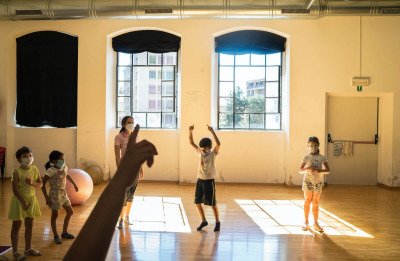 Biella, Opificiodellarte. Summer campus realized within the EduFabLab and Community School projects
Biella, Opificiodellarte. Summer campus realized within the EduFabLab and Community School projects
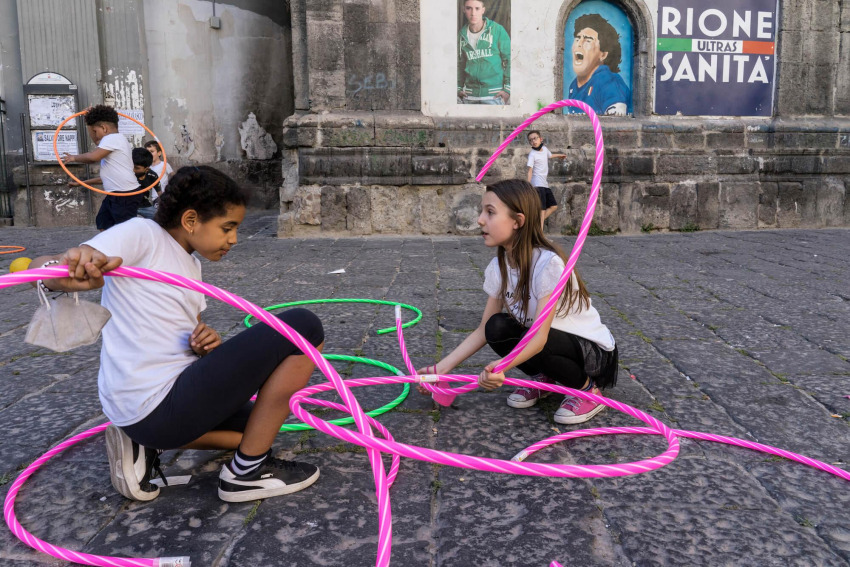 Naples. Two girls during the activities organized as part of the Spiega La Vela project by the Fondazione di Comunità San Gennaro ONLUS in the Sanità district.
Naples. Two girls during the activities organized as part of the Spiega La Vela project by the Fondazione di Comunità San Gennaro ONLUS in the Sanità district.
From the Imagna and Brembana valleys to Favara and Ragusa, touching the suburbs of large cities, the reportage deals with highly topical issues that have often become real emergencies due to the pandemic and the lockdown. The increase in phenomena linked to eating disorders, xenophobia, drug addiction, social isolation with the phenomenon of hikikomori and neets, the degradation of the suburbs, domestic violence has further brought out the fragility of our society, highlighting how the the issue of marginalization is not an isolated fact but a complex and stratified social phenomenon.
The work proposed by by Arianna Massimi and by Riccardo Venturi, twice Word Press Photo and a long experience on the theme of childhood, insists on the invisibility of these themes, placing themselves in a dimension of listening and respect.
The documentary – visible in the exhibition, curated by Ilaria Prili – recounts the experiences and impressions of the protagonists, gives a voice to the young people involved in the activities of the projects supported by "Con i Bambini", and explores the new social geographies also through contributions of leading personalities on the Italian educational and social scene.
On display – among the numerous projects supported by “Con i Bambini” – are also some Biella experiences which together with Cascina Oremo represent excellence in the context of the fight against educational poverty.
The exhibition opens to the public on April 15th to coincide with the inauguration of Cascina Oremo, a project promoted by the Cassa di Risparmio di Biella Foundation which, with an investment of over 12 million euros, renovated an old Biella farmhouse to create a new educational, sports, innovative and inclusive hub for the city.
A place available to the community that offers educational spaces, gyms, swimming pools, classrooms, laboratories where children with disabilities and able-bodied, with their families, will be able to find paths of inclusion and develop their talents thanks to the support of the various specialists who operate in collaboration with the bodies involved in the project: Coop. Tantintenti, Coop. Sportingly, Consorzio Filo da weaving, Coop Domus Laetitiae.
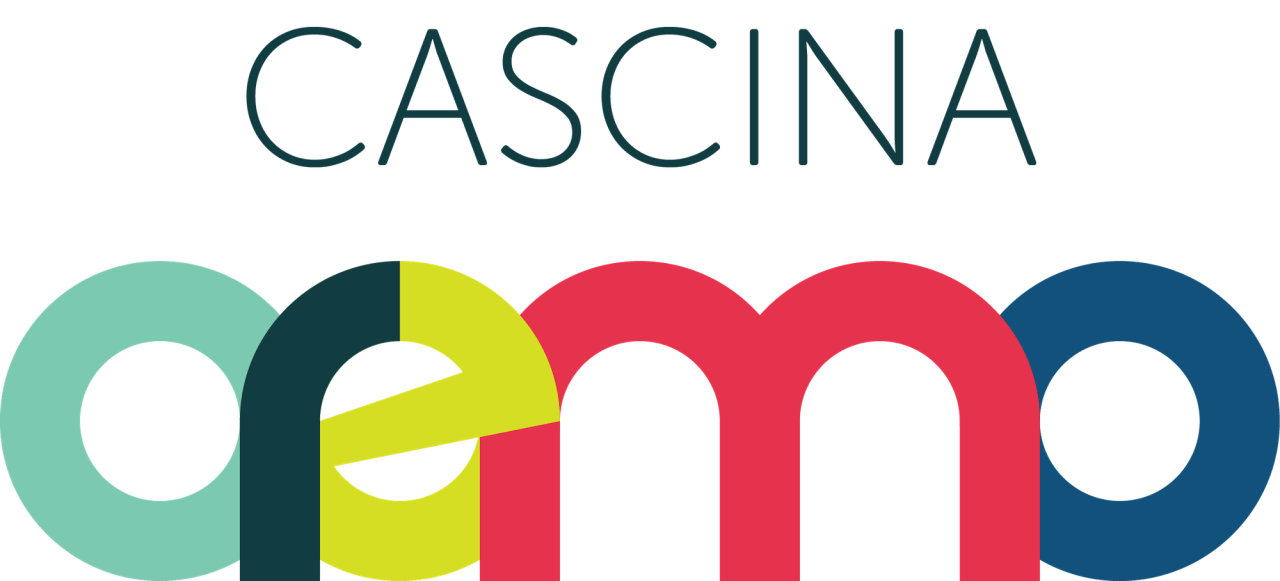
info@palazzogromolosa.it | +39 0991868
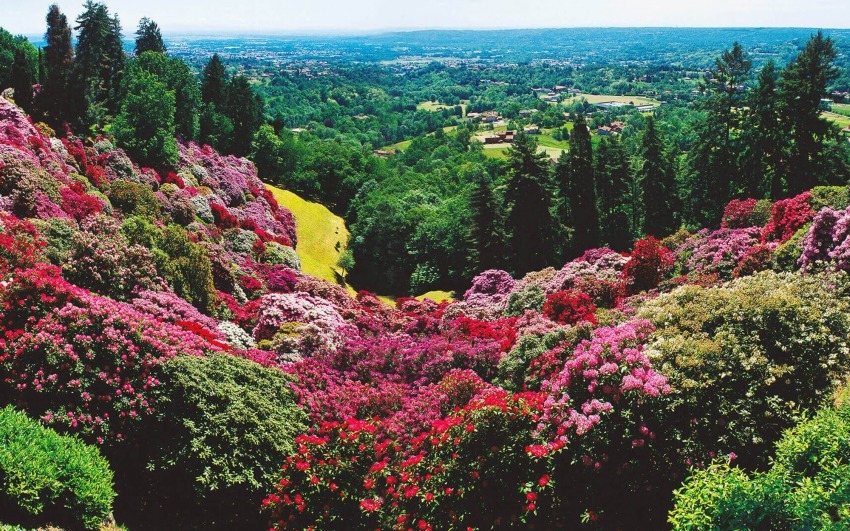
A visit to the exhibition is the ideal opportunity for a weekend to discover our territory. Industrial history and archeology, lots of nature just a few steps from the city with exceptional green areas such as the Burcina Park and the Zegna Oasis, the Sanctuary of Oropa and other spiritual places, the Ricetto di Candelo, a splendidly preserved medieval jewel, Lake Viverone and much more. Without forgetting the flavors of Piedmontese cuisine, our fine wines and the textile "know-how" that in 2019 earned Biella its entry into the Unesco Creative Cities network.
Discover moreBiella is located roughly halfway between Turin and Milan.
If you arrive by car: Once you have reached the center, we recommend that you go upwards to the village of Piazzo with the suggestive Funicular (you can take it in Piazza Curiel and it is free). Once you have gone up to the Piazzo go left, cross Piazza Cisterna and continue for about 5 minutes on foot to Palazzo Gromo Losa, which you will find on your right. Alternatively, you can leave your car at the "Piazzo Parking" (free) going up from Via Ivrea / Via Mentegazzi and reach the village of Piazzo via the convenient lift inside the parking lot. Palazzo Gromo Losa will be on your right once you reach Corso del Piazzo.
If you arrive by train: From the Biella San Paolo station, take the bus (lines 360 and 900) and get off in Piazza Curiel, then go up to the village of Piazzo with the Funicular (free). Once you have gone up to the Piazzo go left, cross Piazza Cisterna and continue for about 5 minutes on foot to Palazzo Gromo Losa, which you will find on your right.
How to reach us